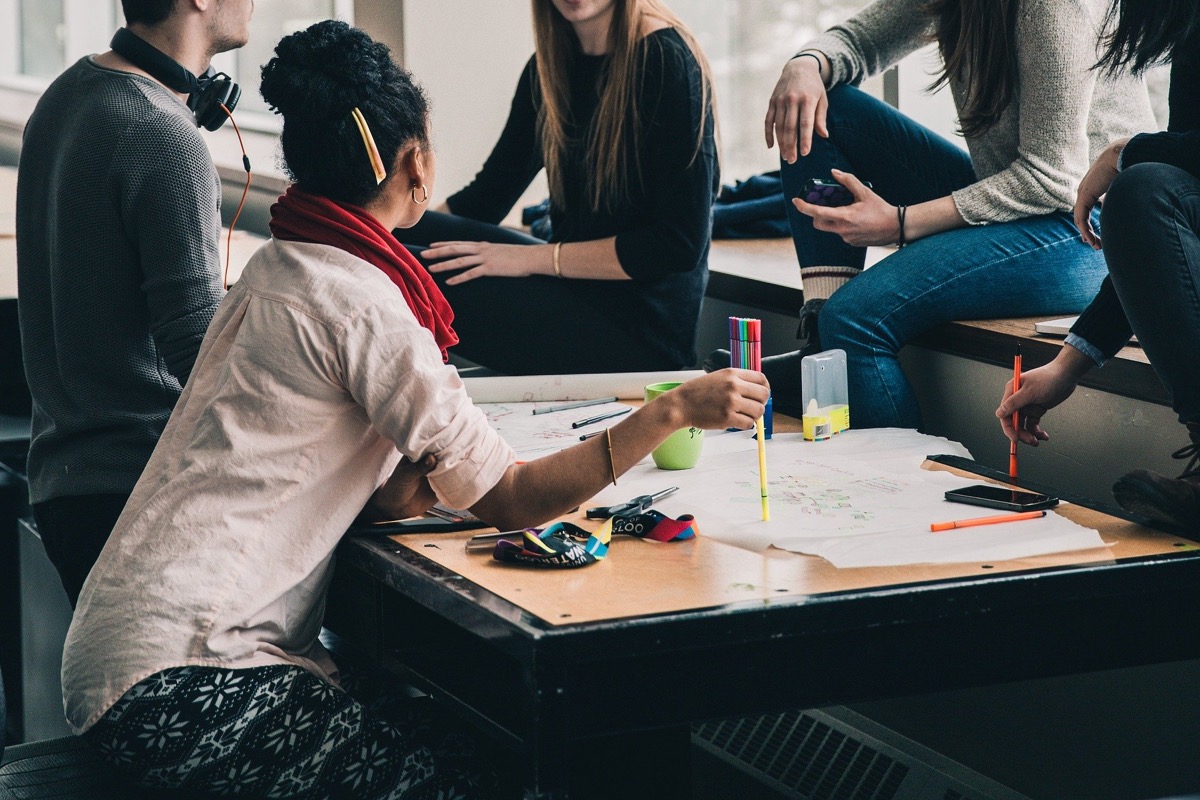
Active listening is necessary for good communication between two people. Listening is the most fundamental component of communication skills. Listening is not something that just happens, Listening is an active process in which a conscious decision is made to listen to and understand the speaker's messages.
Active listening is also about patience, listeners should not interrupt with questions or comments. Active listening involves giving the other person time to explore their thoughts and feelings. they must be given adequate time for that.
Listening is a communication skill as we spend 70-80% of our waking hours in some form of communication ... although most of us are poor and inefficient listeners ... many people are not good and good so it is good to work in the active listening so this can improve and thus enhance good communication.

Benefits of active listening
Active listening has many important benefits for communication between people and it is necessary to take it into account to be aware of the importance of your work. Some of its benefits are:
- Build trust between people. It improves honesty and other people open up emotionally.
- Expand your perspective. The way you understand life depends on your thoughts and listening to other people's perspectives allows you to learn more about how to see things.
- Improve patience. If you are a good listener, it is because you have taken the time and tried to be so. Patience is necessary to be able to listen carefully without judgment.
- It makes you more sensitive. You will feel more connected with other people and with your feelings.
- You will have more competence and knowledge. With better listening skills you will be a more capable person, you will be more efficient and you will be more successful in any area of your life.
- You save time and money. Effective listening not only reduces the risks of misunderstandings and mistakes that could be very damaging, it also saves time and money by avoiding starting a task or project again, just because the given directives were misunderstood.
- Helps to detect and solve problems. By actively listening you will be able to know exactly what others think and therefore, you will be able to make improvements in case some kind of conflict arises.

Exercises to improve active listening
In order to improve your active listening, you will have to do some exercises and take other aspects into account.

- Paraphrase what they tell you. Example: "So you want us to build the new school in the style of the old one?"
- Brief verbal affirmation. Example: "I appreciate the time you have taken to talk to me"
- Ask open questions. Example: “I understand that you are not happy with your new car. What changes can we make to it? "
- Asking specific questions. Example: "How many employees did you hire last year?"
- Mentioning similar situations. Example: "I was in a similar situation after my previous company made me redundant."
- Summarize questions. Example: a job candidate summarizing his understanding of an unclear question during an interview.
- Observe people talking. Example: a meeting facilitator encouraging a calm team member to share their views on a project.
- Summarize group conversations. example: a manager who summarizes what has been said in a meeting and checks with others that it is correct.
- Have good eye contact and nod your head.
- Be aware of non-verbal language own and others.
Tips for becoming an active listener and improving active listening skills
These tips can help you.
Look at the speaker and maintain eye contact
Talking to someone while you are distracted by other things like looking at the mobile screen is disrespecting your interlocutor. Eye contact is considered a basic ingredient of effective communication. When we speak, we look into each other's eyes. Look at them, even if they don't look at you. Shyness, uncertainty, or other emotions, along with cultural taboos, can inhibit eye contact in some people under certain circumstances.

Be attentive and relaxed
Give the speaker your full attention and acknowledge the message. Recognize that non-verbal communication is very powerful. To be attentive:
- Maintain eye contact with the speaker
- Go to the speaker
- Pay attention to what is being said
Let go of distracting thoughts
Mentally protect distractions, such as background activity and noise. Also, try not to focus on the speaker's accent or speech gestures to the point where they become distractions. Finally, don't get distracted by your own thoughts, feelings, or prejudices.
Keep an open mind
Listen without judging the other person or mentally criticizing the things they say to you. If what he says alarms you, go ahead and be alarmed, but don't say to yourself, "Well, it was a stupid move." As soon as you indulge in puzzling judgments, you've compromised your effectiveness as a listener.
Listen without reaching conclusions and don't interrupt to finish your sentences. Remember that the speaker is using language to represent the thoughts and feelings within his brain. You don't know what those thoughts and feelings are, and the only way to find out is by listening.
Don't interrupt or cut off what the speaker is saying
Children were taught that it was rude to interrupt. Certainly the opposite is being modeled in most talk shows and reality shows, where loud, aggressive, and direct behavior is tolerated, if not encouraged. Interrupt sends a variety of messages:
- I am more important than you
- What I have to say is more interesting.
- I do not care what you think
- I don't have time for your opinion
We all think and speak at different rates. If you are a quick thinker and an agile speaker, the burden is on you to relax your pace. for the slower and more thoughtful communicator, or for the person who has trouble expressing himself.
Ask questions to clarify what others are saying
When you don't understand something, of course, you should ask the speaker to explain it to you. But instead of interrupting, wait until the speaker pauses. Then say something like: Go back a second. I didn't understand what you just said about… » Then you can summarize what he has just said to make sure that you have understood him well and that your interlocutor sees that you are attentive to what he says.